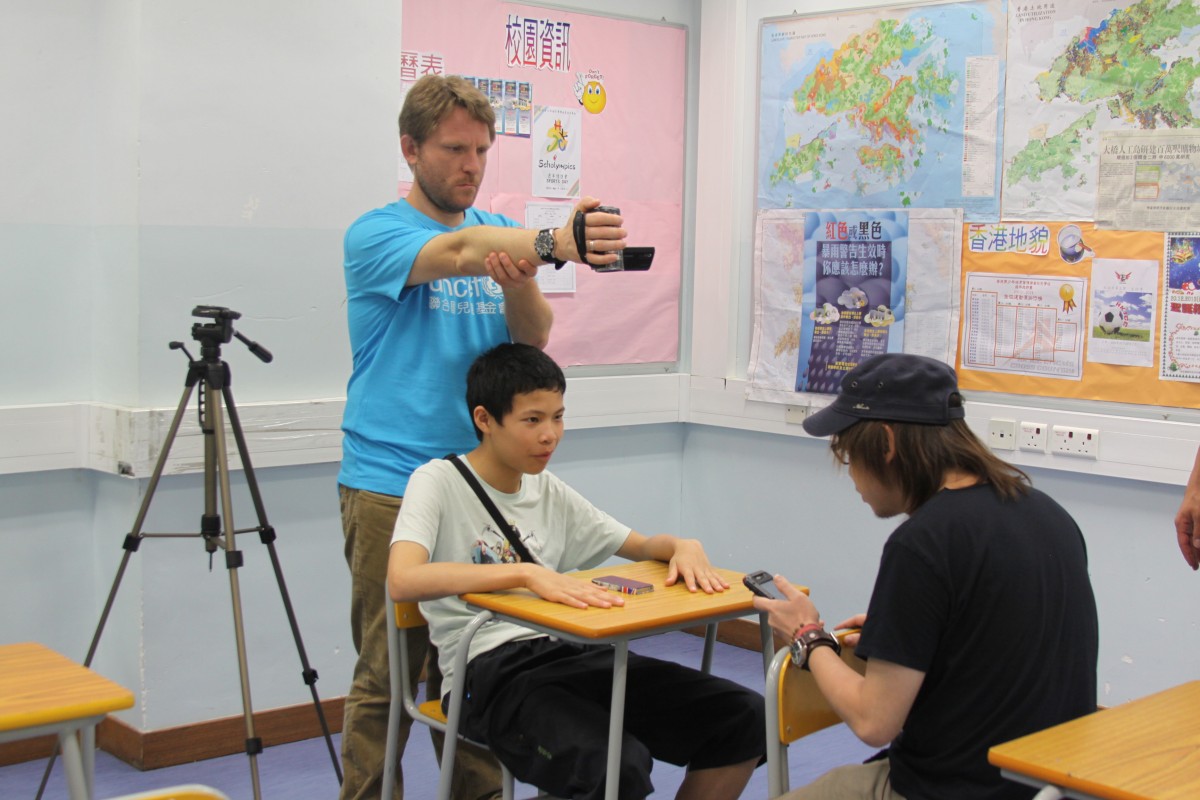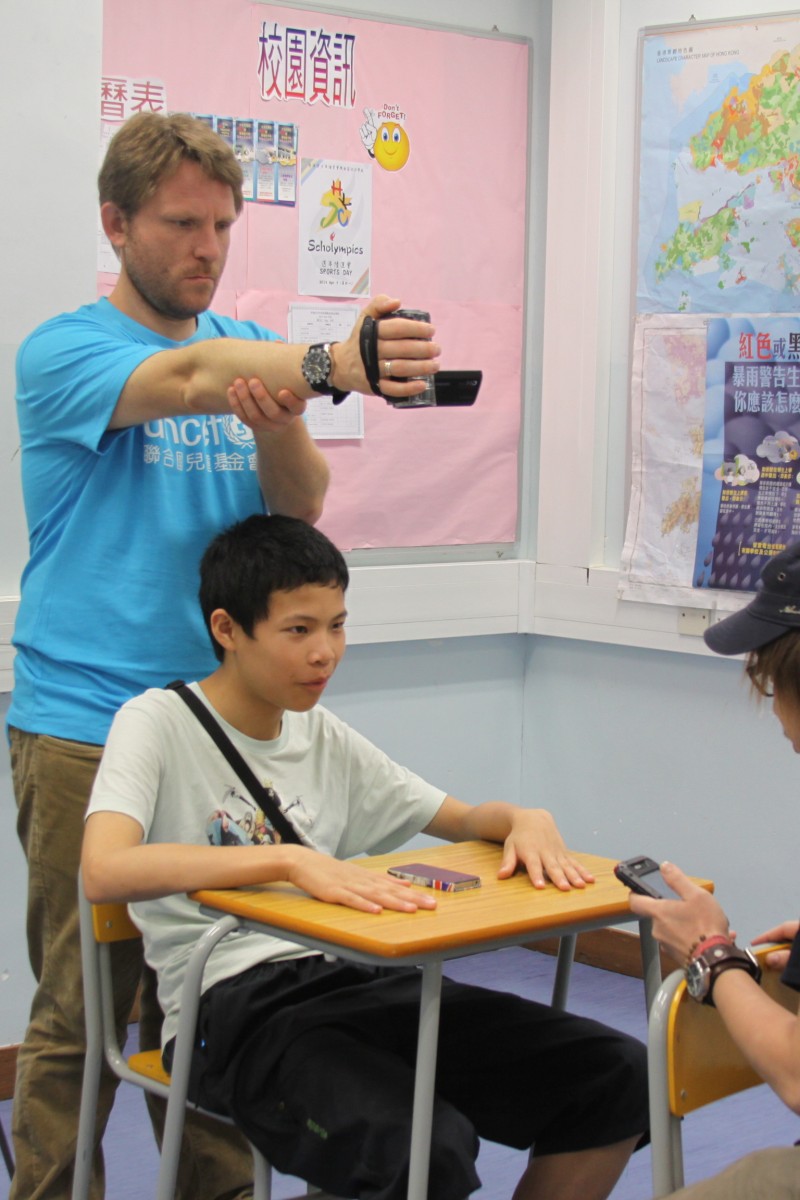 Chris Schuepp helps two students with their filming.
Chris Schuepp helps two students with their filming.A minute is barely enough time to drink a small carton of milk, read a page of a newspaper or pack your schoolbag. So, if you make a movie that is only 60seconds long, it will take great deal of creativity to tell a meaningful story, says videographer Chris Schuepp.
Scheupp works at Unicef's regional office for Central and Eastern Europe and the Commonwealth of Independent States, and teaches students around the world to make short videos.
His latest recruits are 15 students from the Juvenile Care Centre Chan Nam Cheong Memorial School, in Aberdeen.
They took part in workshops run as part of the annual Unicef Hong Kong's "Believe in Zero, Make A Video" campaign.
This year, the project wants to explore the different concerns of teenagers, especially those who feel marginalised, labelled or misunderstood by society.
"When young people are labelled, they begin to doubt their character and ability," says Sofia Fung, Unicef's assistant manager of education.
"We want them to find their self-worth and confidence again by speaking up through videos."
Most of the clips directed, filmed and edited by the students - who are sent to the school mainly because of behavioural issues - centre on freedom, anti-violence and family problems.
One student, Chan Tsz-hin, 15, tells the story of his desperate efforts to escape from the school, which has fortified windows and doors "like a prison".
Tsz-hin has been boarding at the school for one year because he often skipped school to play computer games. Since starting at the school, he has been home only twice - once to collect his belongings and the other time to get a haircut; he hasn't seen his family even at Chinese New Year or Christmas.
At school, he follows a strict daily schedule: he eats his meals and goes to bed at the same time each day; he spends four evenings a week studying by himself.
"I miss home," Tsz-hin says. "I miss my freedom. The use of mobile phones is restricted, and comics we bring in need to be approved before we read them."
In his video, the doors keep closing in front of his face when he attempts to flee. In the end, it is the principal who lets him out because he has improved.
Tsz-hin says he hopes to return to mainstream schools, where he will be able to start again.
Schoolmate Wong Ka-ming created a mini stop-motion movie that expresses his yearning to see the world. In the clip, the 18-year-old goes sightseeing in Tokyo through the pages of a travel guide book.
"I want to go to Shinjuku and Mount Fuji, and make new friends," says Ka-ming, who has been at the school for four years, including three as a boarder. "School life is dull."
Born into a single-parent family, which used to rely on social assistance, Ka-ming could not afford to travel abroad. Since graduating from primary school, he, like Tsz-hin, has also spent more time at game arcades, rather than at home or school, because of the influence from his peers. His mother often reported him lost and he often ended up in police stations.
"I remember the day three policemen showed up at my home to escort me to the detention centre," Ka-ming says. "I couldn't answer when the officers asked if I knew why I was being punished. I asked if it was because I skipped school."
However, he didn't learn his lesson. When he was freed, he continued to skip school. His social worker recommended that he switch to his current school.
Now Ka-ming has grown tired of arcade games and learned to manage his temper. He is also sorry to have made his mother worry and cry.
Watch the videos at youtube.com/hkunicef
If your school is interested in the summer video workshops, send an email to [email protected]
